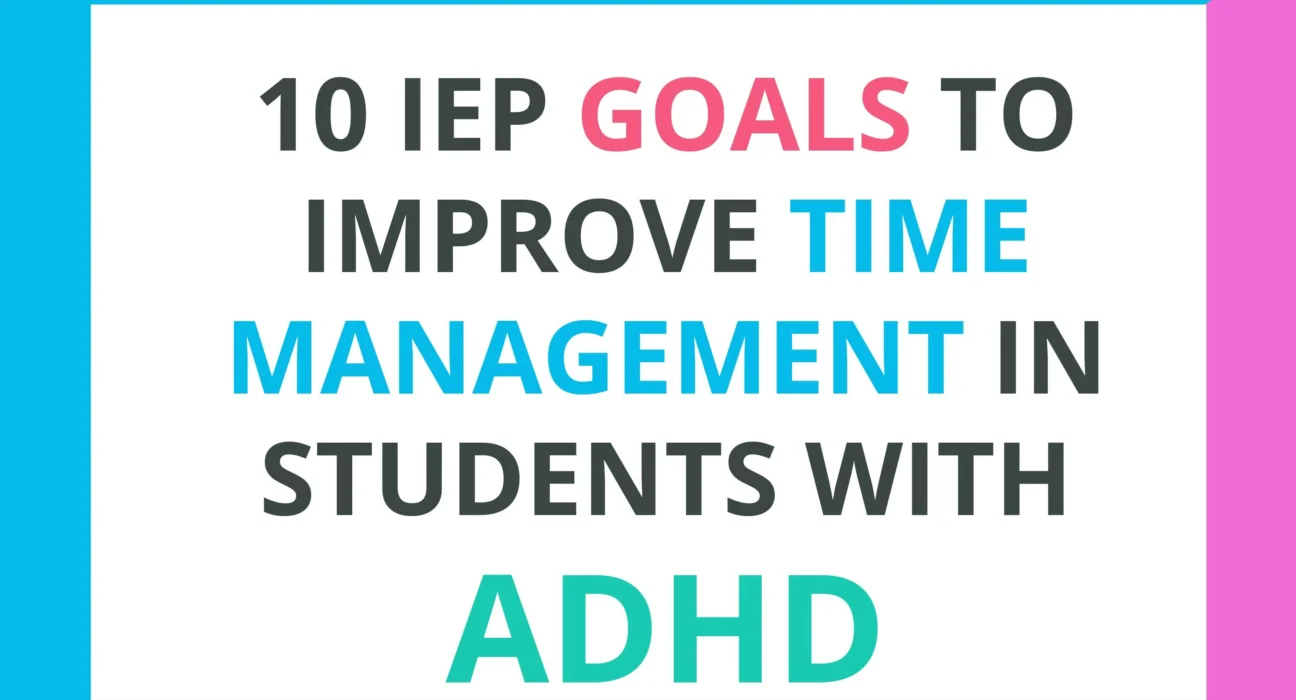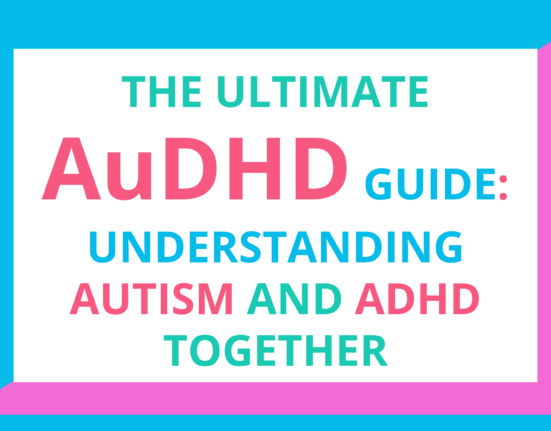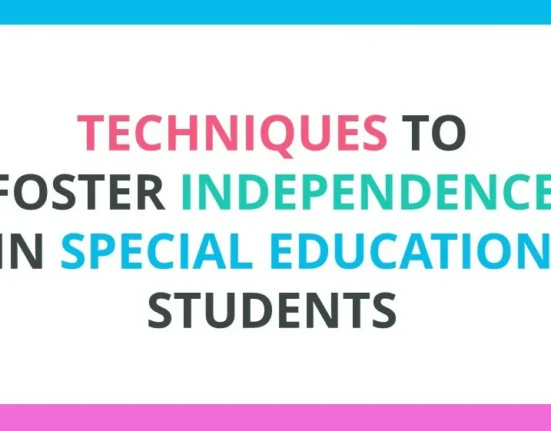Students with ADHD often encounter difficulties in managing their time effectively, which can significantly impact both their academic performance and daily routines. Time management is a crucial skill for success in school and life, making it essential to set targeted Individualized Education Program (IEP) goals that address these specific challenges. By understanding the unique needs of students with ADHD and implementing tailored strategies, educators can help these students make meaningful improvements in their ability to manage time, complete tasks, and achieve academic success.
The challenges associated with ADHD, such as difficulties in maintaining attention, controlling impulses, and regulating energy levels, can have a profound impact on a student’s ability to manage time and stay organized. Students with ADHD may struggle to initiate tasks on time, underestimate the duration of assignments, or become easily distracted, leading to incomplete work. These challenges highlight the need for targeted interventions focused on enhancing time management skills.
How ADHD Affects Time Management and Organization
ADHD is characterized by symptoms that can interfere with a student’s ability to manage time effectively. These symptoms include inattention, impulsivity, and hyperactivity, which can lead to issues such as procrastination, poor time estimation, and difficulty staying on task. Understanding these specific challenges is critical for developing effective IEP goals that address time management and organizational skills.
The Role of Executive Functioning in Time Management
Executive functioning refers to a set of mental processes that are essential for managing oneself and one’s resources to achieve goals. These processes include skills like planning, organization, time management, and self-control. In students with ADHD, executive functioning is often impaired, directly impacting their ability to manage time effectively. Understanding this connection is vital for creating IEP goals that not only address time management but also support the development of broader executive functioning skills.
Importance of Tailored IEP Goals for ADHD
IEP goals are personalized objectives designed to meet the unique needs of each student. For students with ADHD, it is particularly important that these goals are tailored to address specific challenges related to time management. Tailored goals ensure that interventions are relevant and effective, helping students with ADHD build the skills they need to manage their time more effectively. Effective time management can lead to significant improvements in academic performance, as it enables students to complete assignments on time, prepare adequately for exams, and participate fully in classroom activities.
Establishing a Morning Routine
One of the most effective ways to improve time management for students with ADHD is by establishing a consistent morning routine. Mornings can be particularly chaotic for students who struggle with organization and time management, but a structured routine can help set a positive tone for the day. This goal might involve setting specific wake-up times, preparing school materials the night before, and following a checklist of morning tasks. A well-structured morning routine can reduce the stress associated with getting ready for school and help students start their day with a sense of accomplishment.
Teaching Prioritization Skills
Students with ADHD often struggle to determine which tasks are most important, leading to procrastination or incomplete assignments. Teaching prioritization skills is crucial for helping these students manage their time effectively. This might involve using tools like priority matrices or to-do lists that categorize tasks based on their urgency and importance. By learning to prioritize, students can focus their efforts on high-impact activities and avoid getting overwhelmed by less critical tasks. Various tools can assist students in developing these skills, such as the Eisenhower Matrix, which helps students visualize their priorities and make informed decisions about how to allocate their time and resources.
Time Estimation Strategies
Time estimation is a critical component of effective time management, and many students with ADHD have difficulty accurately estimating how long tasks will take. This can lead to frustration and incomplete work. An IEP goal focused on time estimation might involve exercises where students practice predicting how long various tasks will take and then compare their estimates with actual times. Over time, this practice can help students develop a more accurate sense of time, which is essential for managing their schedules. To improve time estimation skills, students can engage in activities that involve timing themselves while completing different tasks, allowing them to adjust their expectations and plan more effectively.
Task Chunking
Large assignments can be overwhelming for students with ADHD, often leading to procrastination and incomplete work. Task chunking, or breaking down assignments into smaller, more manageable parts, is an effective strategy to address this issue. This approach not only makes assignments more manageable but also helps students build momentum as they complete each chunk. By focusing on one small task at a time, students can make steady progress without feeling discouraged by the size of the overall project. Teachers can support this goal by helping students create detailed plans that outline each step of an assignment, ensuring that they stay on track and complete their work on time.
Use of Timers and Alarms
Timers and alarms can be powerful tools for helping students with ADHD manage their time more effectively. Visual timers, which show the passage of time in a clear and easily understandable way, can help students stay focused on tasks and understand how much time they have left. Auditory alarms can signal when it’s time to move on to the next activity, helping students transition smoothly between tasks. This goal might involve the regular use of these tools to support students in staying on track throughout the day. Timers and alarms are particularly useful for students who struggle with transitions between activities, as they help create a sense of urgency and encourage students to complete tasks within the allotted time.
Homework Planning
Homework can be a significant challenge for students with ADHD, who may struggle to manage their time and stay organized after school. An effective goal might involve creating a daily homework schedule that includes specific times for starting and completing assignments. This schedule should be consistent but flexible enough to accommodate changes in workload or after-school activities. By establishing a regular homework routine, students can develop better time management skills and reduce the stress associated with completing assignments. Consistency is key to improving homework completion, and strategies such as creating a designated homework space and using a homework planner can help students stay organized and on top of their tasks.
Classroom Time Management
In the classroom, staying on task can be particularly challenging for students with ADHD, who may be easily distracted or struggle with impulsivity. This goal might involve teaching students specific techniques for maintaining focus during lessons, such as self-monitoring strategies or using fidget tools to help manage restlessness without disrupting their learning. Teacher support is crucial for helping students with ADHD manage their time effectively in the classroom, and educators can provide structured routines, clear instructions, and regular reminders to help students stay on track.
Improving Organizational Skills
Effective time management is closely linked to good organizational skills. Students with ADHD often struggle to keep their materials and workspace organized, leading to lost assignments, missed deadlines, and increased stress. This goal might involve teaching students to organize their school supplies, maintain a tidy workspace, and use organizational tools like binders or folders. There is a strong connection between organization and time management, and when students are organized, they can find their materials quickly, plan their tasks more effectively, and reduce the time spent searching for lost items.
Reflection and Self-Monitoring
Reflection and self-monitoring are essential components of effective time management. Students with ADHD can benefit from regularly reviewing their time management habits to identify areas for improvement and celebrate successes. This goal might involve setting aside time each day for students to reflect on how they managed their time, what went well, and what challenges they faced. There are several tools available to help students with ADHD monitor their time management progress, such as daily checklists, journals, or digital apps that track time spent on tasks and provide feedback on productivity.
Building Flexibility and Adaptability
Flexibility and adaptability are important skills for managing time effectively, especially when unexpected changes arise. Students with ADHD may struggle with transitions or changes in routine, making it crucial to teach them how to adjust their plans when necessary. This goal might involve practicing scenarios where students need to adjust their schedules or priorities, helping them develop the resilience and problem-solving skills needed to manage time effectively in dynamic situations. Flexibility is a key component of effective time management, as it allows students to adapt to changes without becoming overwhelmed or discouraged.
Incorporating Technology for Time Management
Technology offers a range of tools that can support time management for students with ADHD. There are numerous apps designed specifically for task management, time tracking, and organization, which can help students stay on top of their responsibilities. This goal might involve introducing students to these tools and teaching them how to use them effectively. The use of technology can be particularly beneficial for students with ADHD, as it offers customizable solutions that cater to their specific needs. Digital tools can provide visual and auditory reminders, break tasks into smaller steps, and offer feedback on time management performance.
Measuring Success of IEP Goals
Measuring the success of IEP goals is essential for ensuring that students with ADHD are making progress in their time management skills. This involves regularly reviewing the student’s performance, gathering feedback from teachers and parents, and making adjustments to the goals as needed. An effective IEP should be dynamic, with goals that evolve based on the student’s growth and changing needs. Regular feedback is crucial for helping students with ADHD stay motivated and on track with their IEP goals, and it’s important to involve the student in the process of setting and adjusting goals.
Collaboration Between Teachers and Parents
Parents play a vital role in supporting their child’s time management goals, both at home and in collaboration with teachers. By reinforcing the strategies and routines established in the IEP, parents can help their child practice time management skills in a variety of settings. Collaboration between teachers and parents is key to the success of IEP goals focused on time management, and regular communication helps ensure that both parties are on the same page and can address any challenges as they arise.
Challenges and Solutions in Implementing IEP Goals
Implementing IEP goals for time management can be challenging, particularly for students with ADHD who may resist new routines or struggle with consistency. Common obstacles include lack of motivation, difficulty maintaining focus, and resistance to using time management tools. To overcome these challenges, it’s important to set realistic, achievable goals that are tailored to the student’s individual needs. Despite the challenges, many students with ADHD have achieved significant improvements in their time management skills through well-implemented IEP goals.
The Role of Positive Reinforcement
Positive reinforcement is a powerful tool for motivating students with ADHD to achieve their IEP goals. By offering rewards for completing tasks, staying organized, or managing their time effectively, educators and parents can encourage students to continue developing these important skills. Rewards can take many forms, such as verbal praise, extra free time, or small prizes. It’s important to ensure that the reinforcement is immediate and directly linked to the desired behavior, helping the student make the connection between their efforts and the positive outcome.
Long-Term Benefits of Time Management Skills
Developing strong time management skills is crucial not only for success in school but also for future academic and career achievements. Students with ADHD who learn to manage their time effectively are better equipped to handle the demands of higher education and the workplace. IEP goals focused on time management provide students with ADHD the opportunity to develop lifelong skills that will benefit them well beyond their school years. These skills include not only the ability to manage time but also improved organization, self-discipline, and adaptability.
Frequently Asked Questions (FAQs)
- What are effective strategies for improving time management in students with ADHD?
Effective strategies include establishing routines, using timers and alarms, breaking down tasks into manageable chunks, and practicing time estimation skills. - How can teachers support IEP goals in the classroom?
Teachers can support IEP goals by providing structured routines, using positive reinforcement, and incorporating time management tools like timers and checklists into daily activities. - What role do parents play in helping students achieve IEP goals?
Parents play a crucial role by reinforcing time management strategies at home, collaborating with teachers, and providing a supportive environment for practicing new skills. - Can technology help students with ADHD improve time management?
Yes, technology offers a variety of tools, such as task management apps and digital timers, that can assist students with ADHD in organizing their tasks and managing their time effectively. - What are the signs of progress in time management skills?
Signs of progress include completing tasks on time, staying organized, reducing procrastination, and showing improved focus during activities. - How often should IEP goals be reviewed and adjusted?
IEP goals should be reviewed regularly, typically every few months, to ensure they remain relevant and to make adjustments based on the student’s progress and changing needs.
Improving time management in students with ADHD requires a comprehensive approach that includes setting tailored IEP goals, providing consistent support, and using positive reinforcement. By focusing on specific strategies such as establishing routines, teaching prioritization, and incorporating technology, educators and parents can help students with ADHD develop the skills they need to succeed both in school and in life. With patience, persistence, and collaboration, students can overcome their time management challenges and build a foundation for long-term success.






